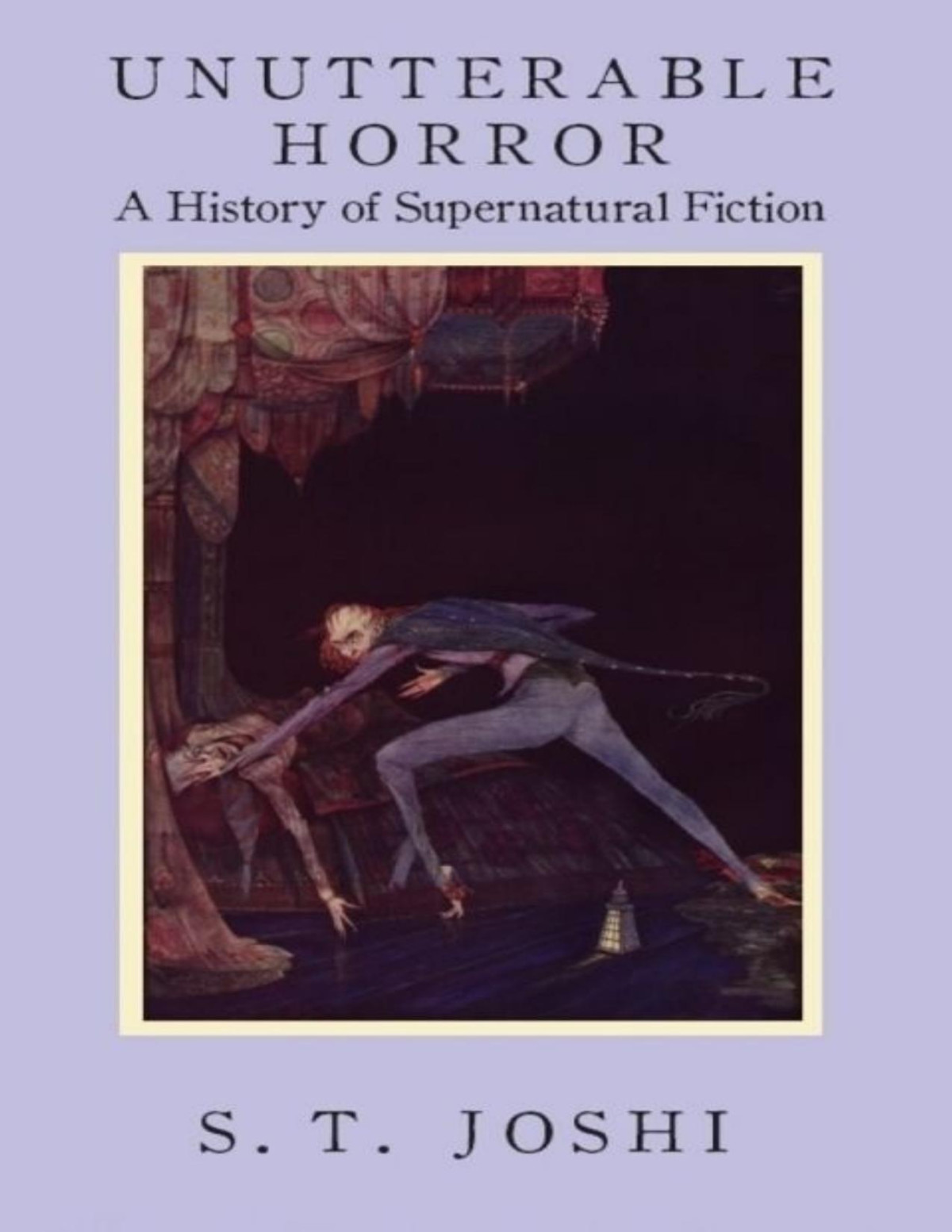

Most ebook files are in PDF format, so you can easily read them using various software such as Foxit Reader or directly on the Google Chrome browser.
Some ebook files are released by publishers in other formats such as .awz, .mobi, .epub, .fb2, etc. You may need to install specific software to read these formats on mobile/PC, such as Calibre.
Please read the tutorial at this link: https://ebookbell.com/faq
We offer FREE conversion to the popular formats you request; however, this may take some time. Therefore, right after payment, please email us, and we will try to provide the service as quickly as possible.
For some exceptional file formats or broken links (if any), please refrain from opening any disputes. Instead, email us first, and we will try to assist within a maximum of 6 hours.
EbookBell Team

5.0
98 reviewsS. T. Joshi is one of the leading authorities on weird fiction, and in this World Fantasy Award-winning study he provides a comprehensive history and analysis of the entire range of weird fiction from antiquity to the present day. For the first time, the full contents of both print volumes are available together in a single electronic book file.
As Joshi’s landmark survey of supernatural literature begins, the focus is on weird fiction from the Epic of Gilgamesh (c. 1700 B.C.E.) to the end of the nineteenth century. Joshi focuses on key works of Greek and Latin literature that introduced many long-enduring motifs in weird literature. Moving on down through Dante, Shakespeare, Marlowe, and Milton, Joshi provides a compact overview of the several different strands of Gothic fiction, beginning with Horace Walpole’s The Castle of Otranto (1764) and culminating with Charles Robert Maturin’s Melmoth the Wanderer (1820), with detailed discussions of Ann Radcliffe, M. G. Lewis, Mary Shelley, and others.
Edgar Allan Poe was a watershed in the history of weird fiction, and his fusion of psychological and supernatural horror was pioneering. He was followed by the prolific Irish writer J. Sheridan Le Fanu, numerous practitioners of the English ghost story (including Henry James and Edith Wharton), and the cynical Ambrose Bierce. Toward the end of the nineteenth century, Bram Stoker, Robert Louis Stevenson, Oscar Wilde, and others made weird fiction a genre that fused popular appeal with aesthetic richness.
As S. T. Joshi’s landmark history of supernatural fiction continues, the focus is placed on an incredible efflorescence of weird writing at the turn of the twentieth century—a period that many scholars have referred to as the Golden Age of weird fiction. Such figures as Arthur Machen, Lord Dunsany, Algernon Blackwood, M. R. James, and H. P. Lovecraft elevated weird fiction to a level of high artistry never seen before, and their work continues to inspire writers up to the present day. Other authors such as Walter de la Mare, L. P. Hartley, and William Hope Hodgson also contributed important novels and tales. Lovecraft’s influence extended to such of his contemporaries and successors as Clark Ashton Smith, Robert E. Howard, August Derleth, Robert Bloch, and Fritz Leiber.
In the years following Lovecraft’s death, a new crop of writers—led by Ray Bradbury, Richard Matheson, Shirley Jackson, and Charles Beaumont—brought horror down to earth and into the realm of ordinary life. Their work laid the groundwork for the extraordinary emergence of weird fiction as a best-selling phenomenon in the work of Ira Levin, Stephen King, Peter Straub, Clive Barker, Anne Rice, and many others. At the same time, more literate figures such as Ramsey Campbell, T. E. D. Klein, and Thomas Ligotti continued to expand the boundaries of the weird in work of the highest literary polish. Today, such writers as Caitlín R. Kiernan, Dennis Etchison, and many others continue to probe new directions in weird fiction.
**